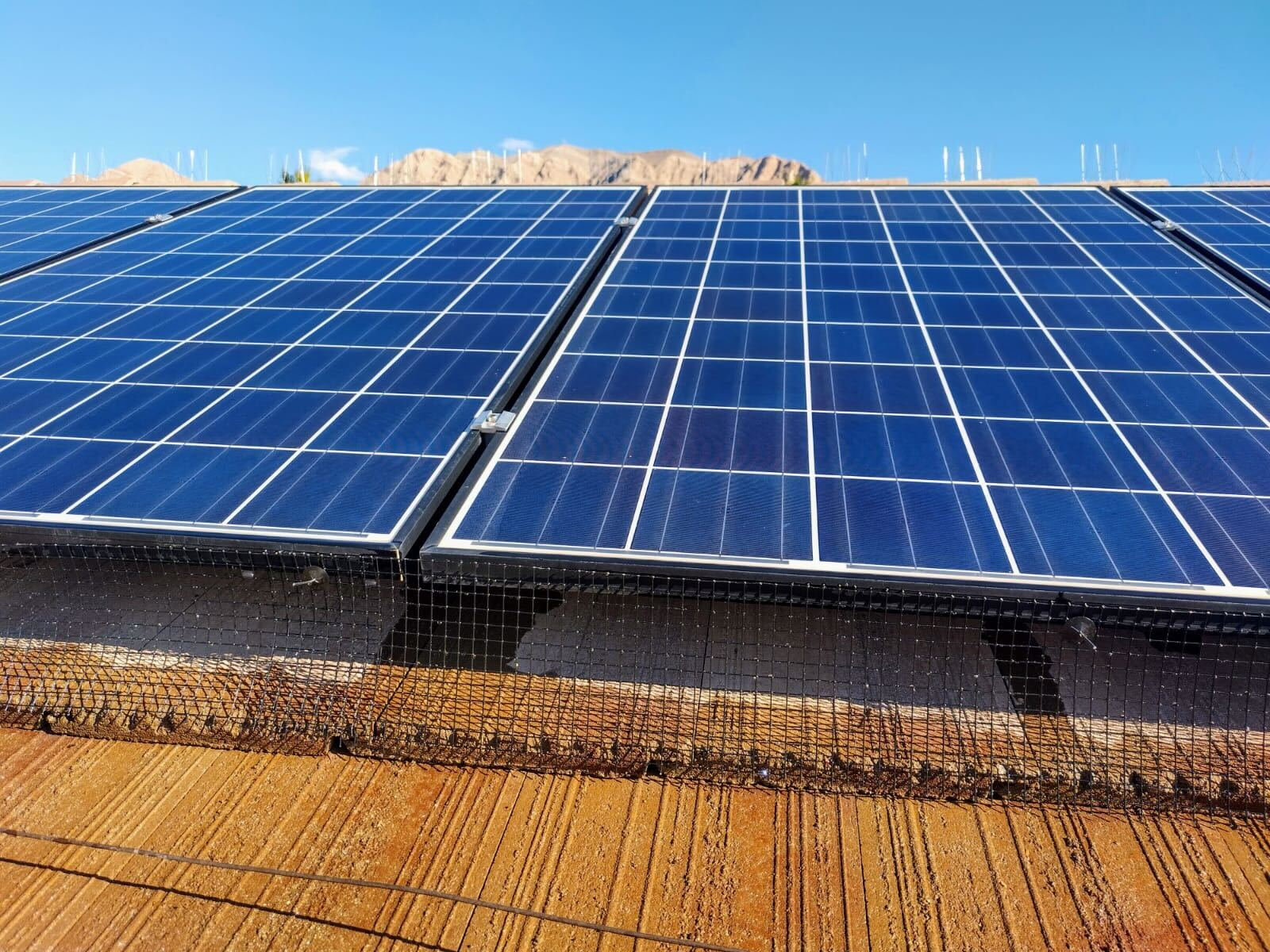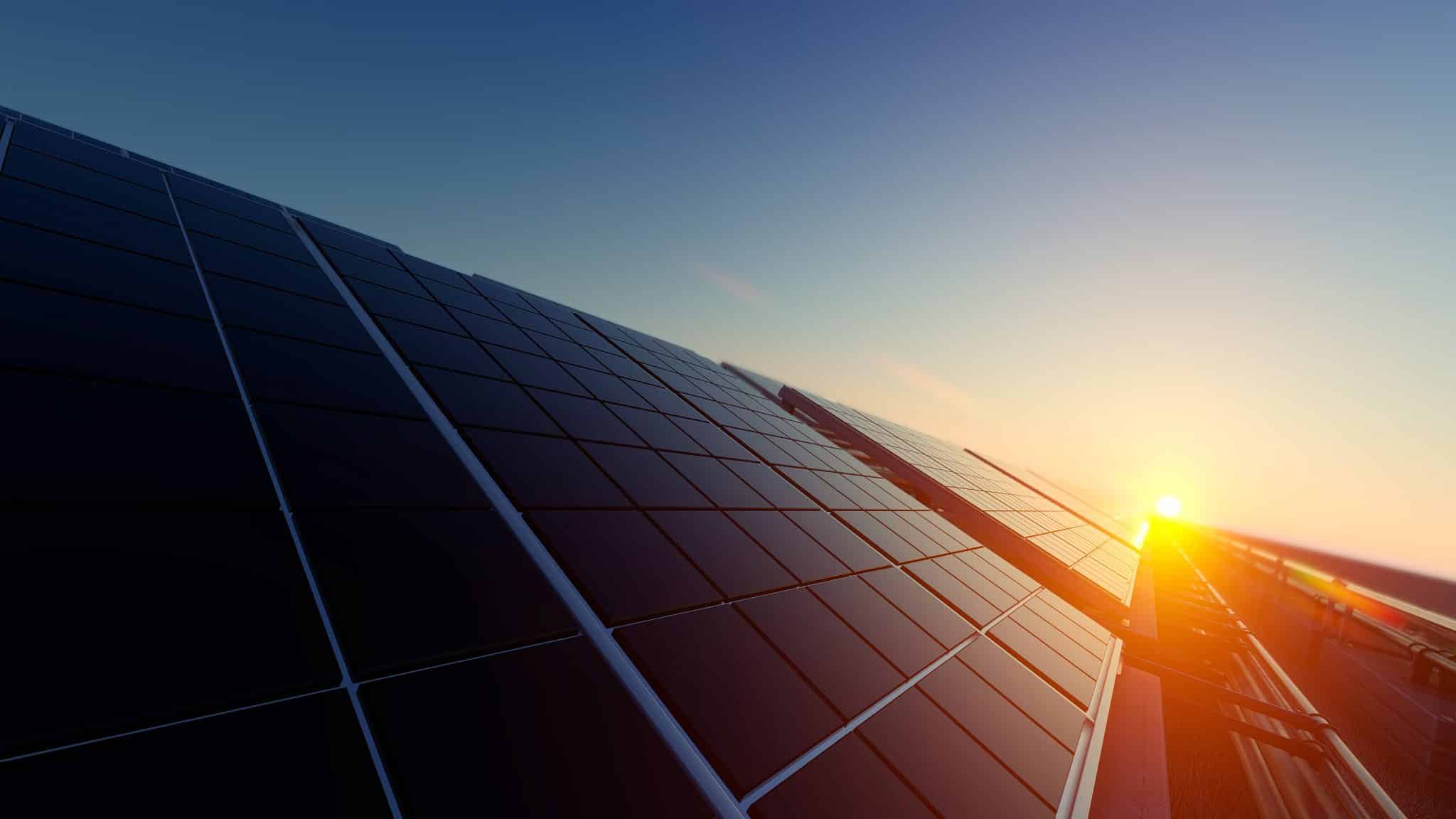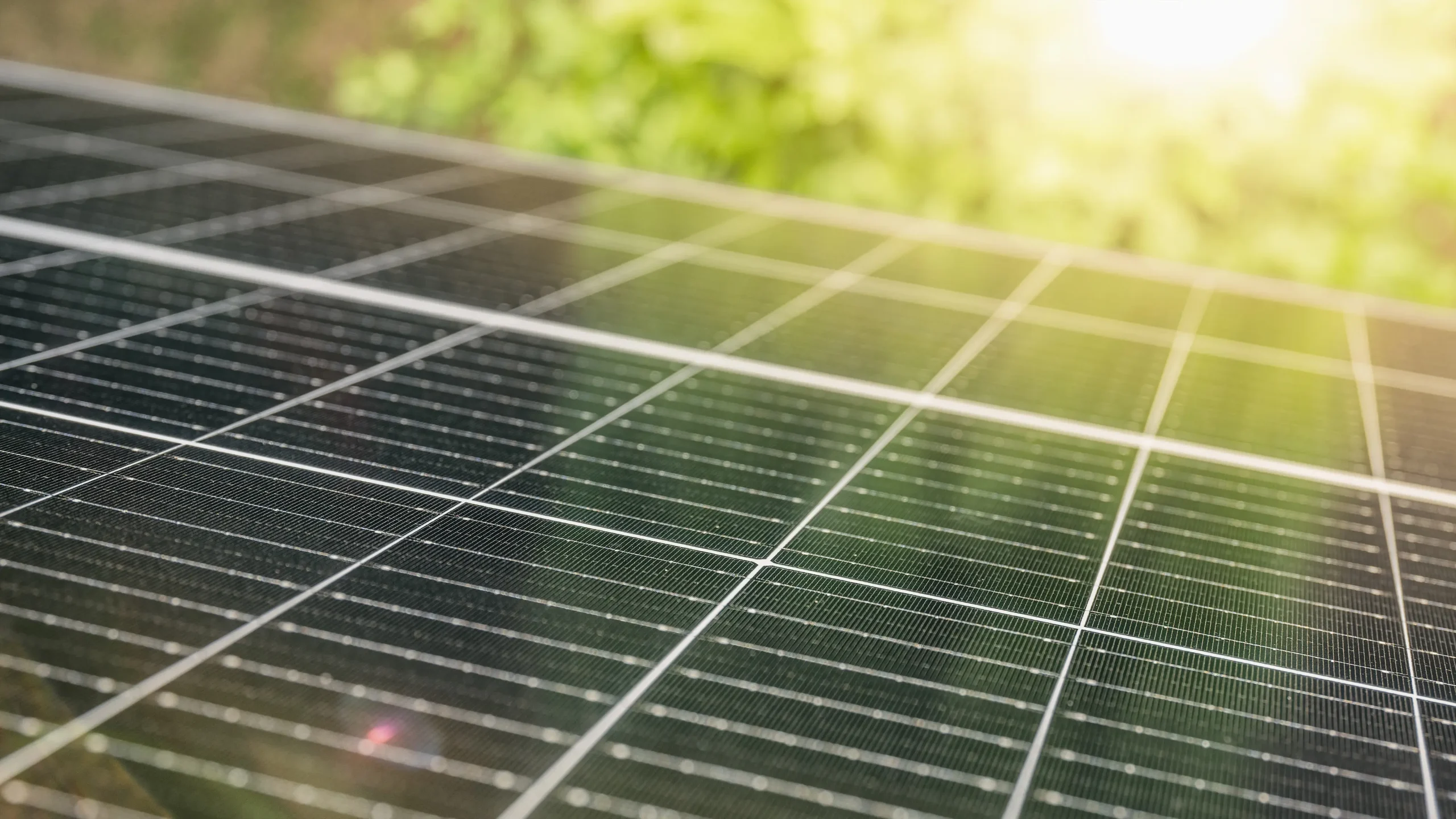Solar energy is becoming more popular as people look for cleaner and more sustainable ways to power their homes and businesses. By using sunlight to create electricity, solar energy offers many benefits, but it also has some downsides. Understanding the pros and cons of solar energy is important if you’re thinking about switching to this renewable energy source.
What Is Solar Energy and How Does It Work?
Solar energy is a type of renewable energy that harnesses power from the sun. It works through a straightforward process that allows sunlight to be turned into electricity. Here’s a simple breakdown of how it all works:
- Capturing sunlight: Solar panels, often placed on rooftops, are made up of cells that absorb sunlight. These cells are designed to generate an electric charge when exposed to sunlight, which starts the energy production process.
- Converting energy: The energy captured is in direct current (DC) form, but homes and businesses use alternating current (AC). A device known as an inverter changes the DC into AC, making it usable for everyday electrical needs.
- Powering your home: Once converted, the energy flows through your home, powering lights, appliances, and other electrical devices. Solar energy helps reduce the need for electricity generated from fossil fuels, making it an eco-friendly option.
- Sending excess energy to the grid: If your solar system generates more electricity than you need, the surplus energy can be sent back to the power grid using a system called net metering. This can help lower your electricity bill by giving you credit for the extra energy you provide.
However, it’s essential to consider solar energy pros and cons. While the system can help reduce greenhouse gas emissions and provide long-term savings, the initial investment in installing solar panels and maintenance costs can be high. These factors contribute to both the advantages and disadvantages of solar energy.
Understanding how solar energy works and its pros and cons can help you decide whether this renewable energy source is a good fit for your home or business.
Pros and Cons of Solar Energy
When considering solar energy, it’s important to understand both its benefits and its drawbacks. Like any energy source, solar power has its ups and downs. By knowing the pros and cons of solar energy, you can decide if it’s the right fit for your needs.
Advantages of Solar Energy
Solar energy offers many benefits, making it an attractive option for homeowners and businesses. Let’s look at some key advantages of solar energy:
Renewable Energy Source
Solar energy is an unlimited and clean power source. Unlike fossil fuels, which will eventually run out, solar power is available every day. By using solar, you tap into a sustainable energy solution that reduces pollution and helps protect the environment.
- Unlimited supply: Solar energy will never run out as long as the sun shines.
- Sustainable: Helps preserve natural resources and reduce reliance on fossil fuels.
- Clean energy: Solar does not produce harmful emissions or pollutants.
Reduces Electric Bill
One of the most immediate advantages of solar energy is the reduction in your electric bill. Once your solar panels start generating power, you’ll rely less on electricity from the grid. In some cases, if your system produces more energy than you use, you can sell it back to the grid through net metering, resulting in additional savings.
- Lower bills: Less reliance on the grid means lower monthly electricity costs.
- Net metering: Sell excess energy back to the grid for bill credits.
- Long-term savings: Over time, your system pays for itself by significantly reducing your energy expenses.
Environmental Benefits
Switching to solar power has a positive environmental impact. Solar energy doesn’t produce harmful gases like carbon dioxide, helping to reduce air pollution and combat climate change. By reducing greenhouse gas emissions, you’re contributing to a cleaner and healthier planet.
- Cleaner energy: Solar power is eco-friendly and produces no emissions.
- Reduces pollution: Lowers harmful gases like CO2, helping reduce global warming.
- Preserves natural resources: Reduces the need for fossil fuel-based energy production.
Energy Independence
Solar energy provides a degree of energy independence that’s difficult to achieve with traditional power sources. Once you have solar panels installed, you generate your own electricity, making you less dependent on the energy grid. This is especially beneficial in areas prone to power outages or high energy prices.
- Self-reliance: Produce your own power without relying on external sources.
- Stable energy supply: Less vulnerable to grid outages or price hikes.
- Secure investment: You are in control of your energy needs, protecting yourself from rising electricity costs.
Low Maintenance Costs
Solar panels require very little maintenance once they are installed. They’re designed to be durable and long-lasting, typically needing only periodic cleaning and a quick inspection to ensure they are working efficiently. Compared to other power systems, solar panels have lower maintenance costs, making them a cost-effective solution in the long run.
- Durability: Solar panels are built to last and withstand various weather conditions.
- Minimal upkeep: Occasional solar panel cleaning and inspections keep the system running efficiently.
- Cost-effective: Long-term savings outweigh the initial investment in maintenance.
Increases Property Value
Homes with solar panels installed often see a boost in property value. Buyers are increasingly looking for energy-efficient homes, and having a solar system already in place can make your property more attractive on the market. This is especially true in areas where energy costs are high.
- Market appeal: Homes with solar panels are more desirable to potential buyers.
- Higher resale value: Solar systems can increase the value of your property.
- Energy efficiency: Solar panels make your home more attractive in an energy-conscious market.
Scalability and Versatility
Solar energy systems are highly versatile and scalable. Whether you want to power a small portion of your home or your entire property, solar systems can be tailored to meet your specific energy needs. This makes solar technology adaptable to various situations and requirements.
- Flexible options: Solar energy systems can be scaled up or down based on your needs.
- Versatile applications: Solar energy can be used for electricity, heating, and more.
- Adaptability: Solar systems can be installed in many different locations, from rooftops to ground mounts.
Long-Term Savings
Although installing solar panels can be expensive upfront, the long-term savings are substantial. Once your system is up and running, the energy it produces can dramatically lower your monthly energy costs. Over time, you’ll likely save much more than you initially invested.
- Cost-effective: Solar power lowers your monthly bills and pays for itself over time.
- Energy savings: Produce electricity without relying on traditional energy sources.
- Return on investment: Solar energy offers long-term financial benefits.
Incentives and Rebates
Many governments offer financial incentives and rebates to encourage the use of solar energy. These programs can significantly reduce the cost of installing solar panels, making solar energy more accessible for homeowners and businesses.
- Government incentives: Many regions offer tax credits, rebates, or grants for solar installations.
- Lower upfront costs: Incentives can make solar energy more affordable.
- Encourages adoption: Financial programs help more people switch to solar energy.
Diverse Uses
Solar energy isn’t just for generating electricity. It has a wide range of uses, from heating water to powering electric vehicles. This versatility makes it an all-around useful energy source that can be tailored to various needs.
- Wide applications: Solar energy can be used for electricity, heating, and more.
- Powers different systems: From lighting to home appliances, solar can cover many energy needs.
- Flexibility: Solar energy can be adapted for both large and small-scale uses.
Rising Power Prices
Traditional electricity prices continue to rise, making solar energy an attractive alternative. Once you’ve installed solar panels, you’re protected from rising energy costs because your system generates free electricity from the sun.
- Price protection: Solar energy shields you from increasing energy prices.
- Stable energy costs: With solar, you lock in lower, predictable electricity expenses.
- Financial advantage: Avoid the rising costs of grid electricity by using solar power.
Technological Advancements
Solar technology continues to improve, making systems more efficient and affordable. With advancements in panels inverters and battery storage, solar energy is becoming even more reliable and accessible to a wider range of people.
- Improved efficiency: New technology makes solar panels more effective at converting sunlight into electricity.
- Affordable options: Advancements in solar technology have lowered costs over time.
- Better storage solutions: Improved battery technology allows you to store more energy for use when the sun isn’t shining.
By understanding the pros and cons of solar energy, it becomes easier to see why many people are making the switch. While there are some disadvantages of solar energy, such as high upfront costs, the long-term benefits often outweigh these concerns.

Disadvantages of Solar Energy
While solar energy offers many benefits, there are also challenges that come with using it. To make an informed decision, it’s important to understand what are the disadvantages of solar energy. Let’s break down some of the key issues you may face when switching to solar energy.
High Cost of Solar Panels
One of the main disadvantages of solar energy is the high initial cost. Installing solar panels can be expensive, and although prices have come down over the years, the upfront cost is still a major hurdle for many homeowners and businesses. The cost of buying panels, inverters, wiring, and paying for installation can add up quickly.
- Expensive upfront investment: The initial setup costs for purchasing and installing solar panels can be high, making it difficult for some homeowners to afford.
- Payback period: While solar can save you money over time, it may take years before you recover the initial investment through reduced energy bills.
- Financing options available: Although incentives, rebates, and loans can help reduce costs, the upfront expense remains one of the biggest barriers to adopting solar energy.
Weather Dependent
Solar energy relies heavily on sunlight, which means its performance can vary depending on weather conditions. On cloudy or rainy days, the amount of electricity generated by solar panels drops significantly. This makes solar a less reliable energy source in areas with less sunshine.
- Sunlight-dependent: Solar panels only produce electricity when the sun is shining, and their efficiency is greatly reduced during cloudy or stormy weather.
- Reduced output during certain seasons: In winter or during overcast weather, energy production decreases, which means your reliance on solar energy alone may be insufficient.
- Location matters: Some areas receive less sunlight throughout the year, which affects how well a solar system will work.
Installation Can Be Difficult
Another challenge with solar energy is the complexity of the installation process. Installing solar panels requires professional expertise, and not all homes are suited for easy installation. The roof must have enough space and be positioned to receive maximum sunlight. Additionally, there are permits and regulatory approvals required before installing a system.
- Professional installation required: Setting up a solar system is not a DIY task; it requires professionals with specific skills.
- Roof suitability: Not all roofs are ideal for solar panels. Roofs that are shaded, too steep, or too small can limit how many panels can be installed.
- Permit and regulation hurdles: In some locations, homeowners must obtain permits or meet specific regulations, adding to the time and cost of installation.
Energy Storage Costs
One of the less-talked-about cons of solar energy is the cost associated with energy storage. Solar panels produce electricity during the day, but if you want to use that energy at night, you need a battery storage system. These systems can be costly, adding to the overall expense of going solar.
- Costly storage systems: Battery storage is needed to store solar energy for use during the night or on cloudy days, but these systems are expensive.
- Limited storage capacity: Most residential solar storage systems can only store a limited amount of energy, meaning you may still need to rely on the grid for power during high-demand periods.
- Additional maintenance required: Batteries require regular maintenance and eventually need to be replaced, adding to the long-term costs.
Space Requirements
Solar panels take up a significant amount of space, and the amount of space required increases with the size of the system you need. If you have a small roof or limited ground space, it might be difficult to install enough panels to meet your energy needs.
- Large space needed: A solar system requires a lot of surface area to capture enough sunlight and produce sufficient energy.
- Roof limitations: If your roof is too small or doesn’t face the sun, you might not have enough space to install an effective system.
- Ground-mounted systems: While it’s possible to install solar panels on the ground, this requires even more space, which might not be an option for many homeowners.
Environmental Impact of Manufacturing
While solar energy is environmentally friendly once it’s in use, the manufacturing process of solar panels can have an environmental impact. Producing solar panels requires the use of raw materials like silicon, and the process can result in emissions and waste. Additionally, some of the chemicals used in the manufacturing process can be harmful if not handled correctly.
- Pollution from production: The process of making solar panels can produce harmful emissions and waste.
- Mining raw materials: Extracting materials like silicon and metals required for solar panels can negatively affect the environment.
- Challenges with recycling: Solar panels contain toxic materials that can be difficult to recycle or safely dispose of, raising concerns about their long-term environmental impact.
Intermittent Energy Source
One of the main disadvantages of solar energy is that it is an intermittent energy source. Solar panels only generate power during the day when the sun is shining. At night or during overcast conditions, energy production stops. This means that solar alone cannot consistently provide energy 24/7 without backup storage systems.
- No energy at night: Solar panels do not generate electricity at night, making it necessary to rely on stored energy or grid power during these times.
- Unpredictable output: Since solar energy production varies depending on sunlight, it’s not a fully reliable energy source without a backup.
- Backup needed: To ensure a steady power supply, solar systems need to be paired with energy storage or other energy sources like the grid.
Efficiency Limitations
Although solar panels have become more efficient over time, they still have limitations in how much sunlight they can convert into electricity. Most solar panels are only able to convert a portion of the sunlight they capture into usable energy. This means that to produce a significant amount of electricity, you need a larger system, which adds to costs.
- Limited conversion efficiency: Even the best solar panels can only convert a portion of the sunlight they receive into usable electricity.
- More panels required: To generate enough power, you’ll often need a larger number of panels, which takes up more space and increases costs.
- Energy loss: Some energy is lost during the conversion process, reducing the overall effectiveness of the system.
Grid Integration Issues
In some areas, connecting your solar system to the electrical grid can be challenging. Local utility companies may have strict regulations about how much solar energy you can send back to the grid, and they may limit your ability to fully benefit from net metering programs. This can reduce the savings you might expect from your solar system.
- Strict utility regulations: Some utilities have strict rules about how solar energy systems can be connected to the grid, which can complicate the process.
- Limited buyback options: Some utilities may not allow you to sell back excess energy or may limit how much they will pay for it.
- Additional costs: Integrating with the grid may require additional equipment, adding to your upfront costs.
Difficulty With Relocation
Solar panels are designed to be a long-term investment, typically lasting 20-30 years. However, if you need to move, it’s not easy to take your solar panels with you. The cost of removing and reinstalling solar panels can be high, and the process itself is complex. This makes solar systems less ideal for people who may not plan to stay in one place for a long time.
- High relocation costs: Removing and reinstalling solar panels can be expensive and time-consuming.
- Fixed installation: Solar panels are meant to stay in one place for many years, which may not be practical if you move frequently.
- Not portable: Unlike some energy solutions, solar panels cannot easily be taken with you if you relocate.
Scarcity of Materials
Solar panels are made from materials like silicon and other metals, which are not unlimited. As the demand for solar energy grows, the scarcity of these materials may increase, leading to higher prices for solar panels in the future.
- Limited raw materials: Silicon and other components used in solar panels are finite, and their availability may decrease over time.
- Higher future costs: If these materials become scarce, the cost of manufacturing solar panels could rise, making solar energy more expensive.
- Sustainability concerns: The extraction of these materials has an environmental impact, and recycling old panels remains a challenge.
Disposal or Recycling Options
Once solar panels reach the end of their lifespan, they need to be disposed of or recycled. However, the recycling process is not always straightforward. Many solar panels contain toxic materials that can be harmful to the environment if they are not disposed of properly.
- Recycling difficulties: Solar panels are difficult to recycle due to the complex materials used in their construction.
- Toxic components: Some panels contain hazardous materials that can leak into the environment if not properly handled.
- Limited recycling facilities: There are few specialized facilities that can effectively recycle solar panels, which creates challenges for long-term sustainability.
Maintenance Requirements
While solar panels generally require low maintenance compared to other energy systems, they do still need occasional care. Panels need to be kept clean to work efficiently, and components like inverters may need to be replaced during the system’s lifespan. Although these costs are relatively low, they are still something to consider when weighing the solar energy pros and cons.
- Cleaning needed: Dust, dirt, and debris can reduce the efficiency of solar panels, so they need to be cleaned occasionally.
- Replacement parts: Some parts, like inverters, may need to be replaced every few years.
- Minimal overall maintenance: Compared to other energy systems, solar requires less maintenance, but it still has some upkeep requirements.
By considering both the pros and cons of solar energy, especially what are the disadvantages of solar energy, you’ll be better equipped to decide whether solar energy is the right choice for your home or business. While solar power offers many benefits, these challenges should also be carefully weighed.
How Sustainable Is Solar Energy?
Solar energy is one of the most sustainable energy sources available today. Unlike fossil fuels, which are limited and pollute the environment, solar energy comes from the sun, an endless resource. As long as the sun shines, we can use it to produce clean, renewable energy, making solar one of the best options for the future.
One of the biggest pros of solar energy is that it doesn’t release harmful gases or pollutants into the air. This reduces the overall environmental impact compared to traditional energy sources like coal or gas. Plus, solar panels last for 20-30 years, providing a long-term solution to our energy needs without needing constant replacement.
When looking at the solar energy pros and cons, it’s clear that sustainability is a major benefit. Solar energy reduces reliance on fossil fuels, helps lower greenhouse gas emissions, and conserves natural resources. However, it’s important to remember that there are still some challenges. For example, the production of solar panels requires raw materials and energy, which can have an environmental impact. But overall, the advantages of solar energy far outweigh the drawbacks when it comes to sustainability.
In terms of long-term energy use, solar is an excellent choice. By investing in solar panels, you are contributing to a cleaner, more sustainable future. The more people switch to solar energy, the less we will rely on limited resources like oil and coal. As technology improves, the efficiency of solar panels will continue to increase, making this renewable energy source even more viable.
Who Should Use Solar Energy?
Solar energy is a great option for many people, but it’s important to understand what are the pros and cons of solar energy to decide if it’s right for you. Solar power is ideal for homeowners and businesses looking to reduce their energy bills, lower their carbon footprint, and gain more control over their energy use.
Pros of solar energy include its ability to lower your monthly electric bill and provide a reliable, renewable energy source. If you live in an area with plenty of sunshine, installing solar panels can significantly cut down your energy costs over time. Solar energy is also a smart choice for anyone who wants to reduce their impact on the environment since it produces clean electricity without polluting the air.
Additionally, if you plan to stay in your home or business for a long time, investing in solar panels can be worthwhile. Solar systems typically last for 20-30 years, which means you’ll be saving money on energy for many years after the initial installation. And if you’re concerned about rising energy prices, solar energy can help protect you from those increases, giving you more control over your energy expenses.
However, solar energy may not be the best choice for everyone. One of the cons of solar energy is the high upfront cost of purchasing and installing solar panels. If your budget is tight, it may take some time to see the financial benefits. Additionally, if your property doesn’t get enough sunlight or has limited roof space, solar energy might not be as effective for you.
If you’re still unsure whether solar energy is the right choice for you, feel free to contact us for more information. We can help you understand your options and see if solar energy is a good fit for your specific needs.
Conclusion
Solar energy is a powerful and sustainable way to generate electricity. While it offers many benefits, like reducing energy bills and helping the environment, it’s important to understand what are the pros and cons of solar energy before making a decision. By weighing the solar energy pros and cons, you can determine if it’s the right choice for your home or business.
The pros of solar energy include long-term savings, energy independence, and a reduced carbon footprint. However, the upfront costs and weather dependency are factors to consider. In the end, solar energy is an excellent option for those looking to invest in a cleaner, more sustainable future.


